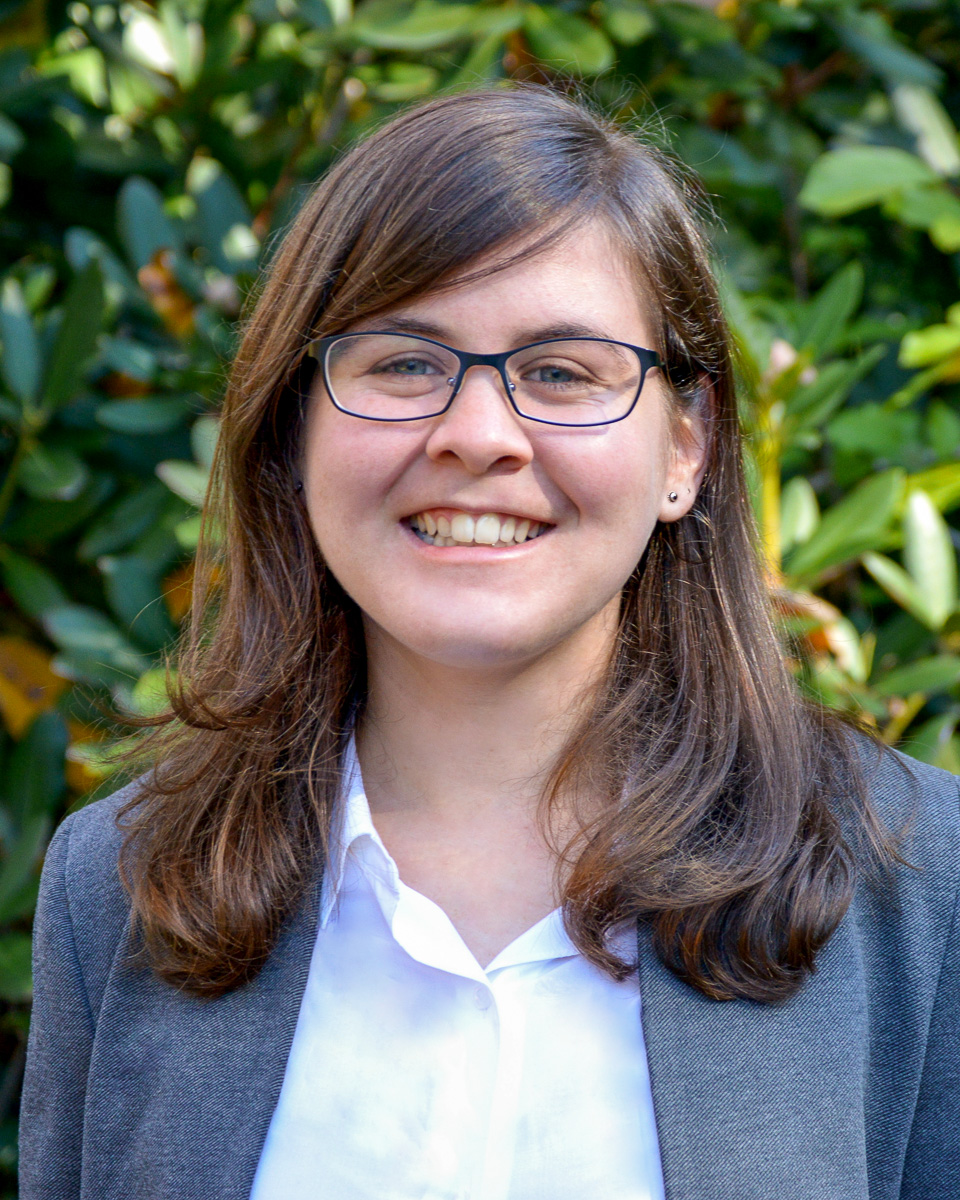Weichman to Join Princeton Chemistry Faculty
The Department of Chemistry is pleased to welcome Marissa Weichman as assistant professor, effective July 1, 2020. Weichman joins Princeton from the University of Colorado, Boulder, where she held a NIST/NRC fellowship as a postdoctoral research associate under the advisement of physicist Jun Ye.

Photo courtesy of Marissa Weichman
Weichman will be part of Princeton’s Spectroscopy/Physical Chemistry research area. Her lab will develop novel spectroscopic tools to examine chemical interactions in nanoscale and hybrid light-matter systems, harness control of these systems, and explore both their fundamental properties and broader applications in catalysis, synthesis, and materials.
Weichman received her B.S. in Chemistry from the California Institute of Technology, and her Ph.D. in Chemistry from the University of California, Berkeley, under the mentorship of spectroscopist Daniel Neumark, where she was the recipient of an NSF Graduate Research Fellowship and also won the Justin Jankunas Doctoral Dissertation Award in Chemical Physics for her thesis. She has authored or jointly authored 35 publications, including a 2019 paper in Science on “Rovibrational quantum state resolution of the C60 fullerene” that one colleague called a “spectroscopic tour-de-force.”
“I am very excited to start my research program, building on my background in spectroscopy and chemical physics,” Weichman said, adding that she looks forward to joining the “world-class” department at Princeton. “My group will develop and apply novel spectroscopies to elucidate detailed quantum phenomena and reaction dynamics in complex and strongly-interacting molecular systems.
“One new arena that I am excited to step into is the field of strong light-matter coupling. Most key chemical problems lie in the transformation of molecular material into desired products or useful energy. There is a need for novel, broadly applicable tools to better manipulate the efficiency and specificity of complex reactive processes. Polaritons are hybrid quantum states that arise through the strongly interactions of matter (e.g. molecules) with a field of light. Molecular polaritons have unusual emergent properties with huge untapped potential for chemistry.
“In one of our future thrusts, my group will explore polariton chemistry as both a means to probe fundamental chemical physics and as a powerful tool for catalysis and synthesis.”
Weichman has undertaken research at the Fritz Haber Institute as a visiting graduate researcher. There, under the advisement of Knut Asmis, she worked on vibrational action spectroscopy of metal oxide clusters and their reactive adducts. Recently, she won the Telluride Science Research Center’s Peter Salamon Award, and the Best Poster Award at the Conference on Dynamics of Molecular Collisions.
Weichman was born in California. The daughter of a theoretical physicist and a homemaker with roots in the Princeton area, Weichman grew up in California, Colorado, and in Boston, Massachusetts. Her hobbies include hiking and cycling; although lately, during the pandemic, she’s been “baking a lot of bread.”
Weichman will be teaching an undergraduate course in quantum mechanics. In it, she said she hopes to “help students learn how to think critically and bushwhack to the meat of a complex problem, to communicate clearly in writing and presentation, and – most importantly – to use creativity and intuition to extend their toolkits from known problems towards open-ended questions.”
